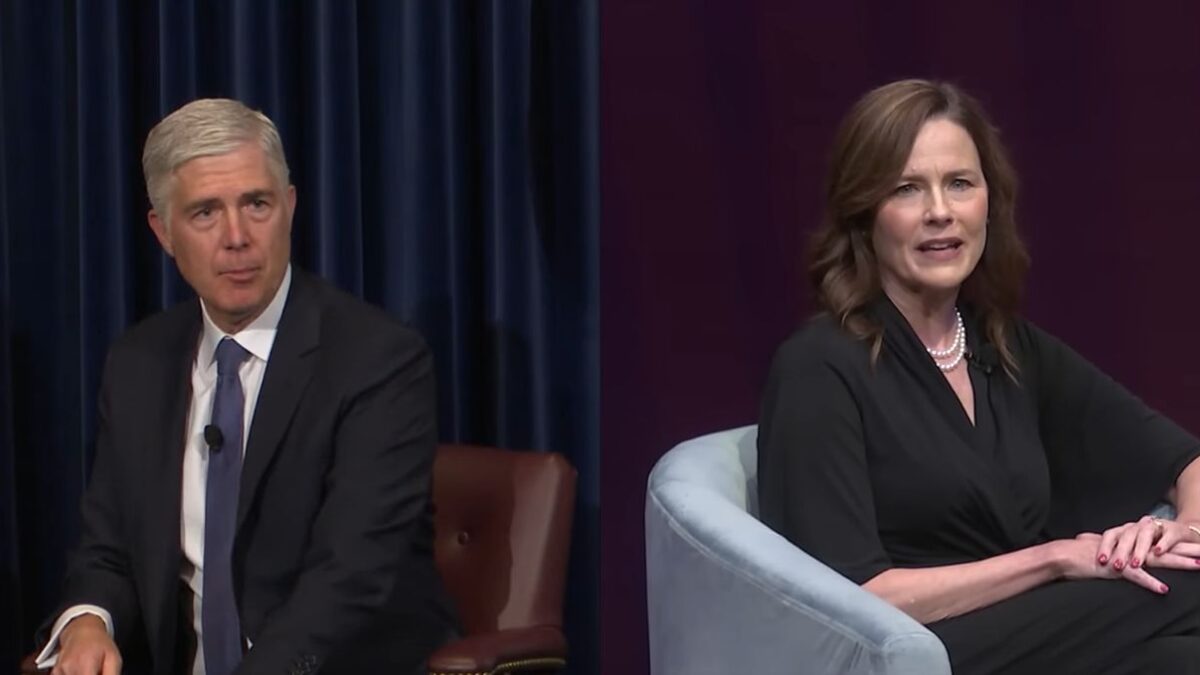Well, it finally happened — the Supreme Court’s patience for progressive doublespeak snapped. During oral arguments in Chiles v. Salazar, Colorado tried to spin its way around one of the most blatant First Amendment contradictions in modern law — and Justices Neil Gorsuch and Amy Coney Barrett weren’t having a bit of it.
At the center of the case is Kaley Chiles, a Christian therapist challenging Colorado’s so-called “conversion therapy” ban. Her crime? Believing that minors struggling with gender dysphoria deserve the right to talk — yes, talk — about their feelings, even if that conversation doesn’t affirm the latest fad in gender ideology. The Democrat-run state insists that banning these conversations is just a “regulation of treatment,” not an infringement on free speech. Because apparently, words stop being words when liberals don’t like them.
Colorado’s Solicitor General Shannon Stevenson opened by claiming that the ban “does not interfere with any First Amendment interest,” arguing it merely governs “treatments.” Translation: censorship doesn’t count as censorship when they’re doing it.
But Gorsuch wasn’t buying it. He hit Stevenson with a “mirror image” hypothetical that exposed the entire double standard. What if, he asked, a state passed a law forbidding therapists from affirming homosexuality or gender transitions — you know, the same logic but in reverse? Would that still just be “regulating treatment”?
That’s when Colorado’s legal argument started doing somersaults. Stevenson awkwardly tried to dance around the question, saying, essentially, that the “words” used in therapy don’t make it speech. Justice Barrett, clearly unimpressed, cut in to clarify what everyone was thinking:
“Can a state pick a side?” Barrett asked. “Tennessee could ban one kind of talk, and Colorado could ban another, and that’s rational basis review?”
Stevenson stammered, dodged, and tried to invoke “standards of care” as a moral shield — the same “standard” conveniently defined by left-wing activist groups and medical organizations captured by ideology. Barrett pressed further, pinning Colorado down: so your law gets rational basis, but Tennessee’s — which protects minors from irreversible harm — gets strict scrutiny?
That, folks, is what we call a liberal pretzel. Colorado’s entire argument boiled down to this: speech they agree with is medicine, speech they disagree with is a crime.
Let’s be real — this isn’t about protecting kids. It’s about protecting the narrative. Colorado wants to muzzle therapists who don’t cheerlead gender transition, while celebrating those who push puberty blockers like candy. And when pressed, their top lawyer couldn’t even keep her story straight.
Gorsuch and Barrett, meanwhile, reminded America why the Constitution still matters. Free speech doesn’t depend on who’s in power or which ideology is trending on Twitter. You can’t outlaw a therapist’s words just because they might challenge a politically convenient “truth.”
The fact that the state’s case collapsed under its own contradictions is telling. Even the justices seemed baffled by Colorado’s logic — or lack thereof. When a government starts deciding which conversations are legal based on ideology, that’s not medicine. That’s tyranny dressed up as healthcare.
So, yes — Gorsuch and Barrett deserve credit for calling out this hypocrisy for what it is. And if the Court rules as it should, it’ll be a win not just for one therapist in Colorado, but for every American who still believes in the radical idea that free speech means free speech for everyone.
Because no matter how loudly the left screams “science,” censorship is still censorship — and the First Amendment doesn’t come with a progressive exception clause.



